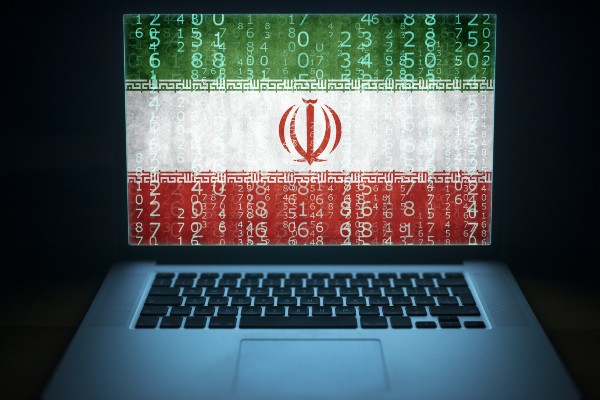Thousands of fake online accounts have been found inciting hatred on both sides of the political map in order to weaken Israeli society from within.
By Batya Jerenberg, World Israel News
Iran has been using its cyber capabilities recently to try sowing division in Israel ahead of national elections Tuesday, according to the Shabak internal security agency and civilian experts.
Among Iran’s constant attempted cyberattacks on critical infrastructure and Israel’s military, those in the field have identified these more insidious bids that are aimed at weakening Israeli society’s basic sense of unity.
Iran is trying “to influence Israeli society by spreading lies with political content,” researcher Ofir Barel of Tel Aviv University’s Workshop for Science, Technology and Security told Agence France Press (AFP) Sunday.
“We see in many instances fake Iranian accounts that can come in large groups of hundreds and either spread divisive and inciting messages, or spread lies to harm the image of a certain politician,” he said. “The aim is not to harm a specific politician but to encourage polarization and chaos in Israeli politics, which is already complicated due to the political gridlock.”
FakeReporter, an Israeli disinformation watchdog that employs professional intelligence experts to expose online incitement, hate speech and Coordinated Inauthentic Behavior, has specifically uncovered some 100 fake Facebook accounts that rail against supporters of Likud leader Benjamin Netanyahu, AFP reported.
But the NGO has also been warning against what it calls “a false campaign that has already been running for three years” – after each of the last four deadlocked elections Israel has had in that timespan – by “a seemingly foreign account,” in order to delegitimize the outcome of the votes.
In a tweet on October 28, the group said that the purpose of airing such inflammatory rhetoric as “the Likud really won,” which gullible people then spread, was to “prepare the ground … for unwillingness on the part of the public to accept the elections’ outcome.”
“We assume that Iran is operating in this [electioneering] space,” said Check Point Research Division head Lotem Finkelstein last month. “Iranian psychology experts and intelligence personnel are working to undermine the government.”
The dangers inherent in the weakening of Israeli society by cyber means during elections periods is a major concern of Israel’s security agencies as well.
In August, the Shabak launched “Operation for Democracy” against mainly Iranian and Russian elements suspected of trying to spread anarchy in the country and weaken trust in state institutions. Its main focus is the removal of internet bots, automated computer programs that mimic human behavior and can spread messages very quickly through the social networks.
During the course of last year’s elections, the agency removed 140,000 Iranian bots from the internet.
Israel’s National Cyber Directorate and Communications Ministry are also prepared to defend against direct hacking attacks on the Central Elections Committee’s servers and websites. Although Israelis vote using paper ballots, final tallies inputted electronically have to be protected.
In addition, as Check Point’s Finkelstein pointed out, the mere fact that some malicious actor could, for example, bring down the CEC’s website for a few hours, when it reports on voting tallies throughout the day, “may very well lead the residents to question the credibility of the results. It doesn’t have to be Right or Left, the goal is to undermine the credibility.”


